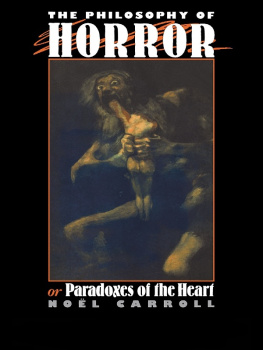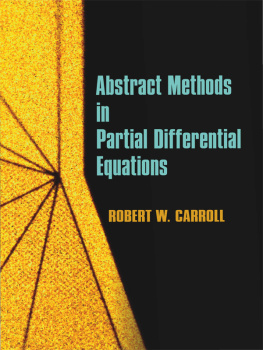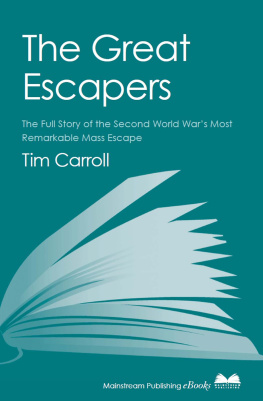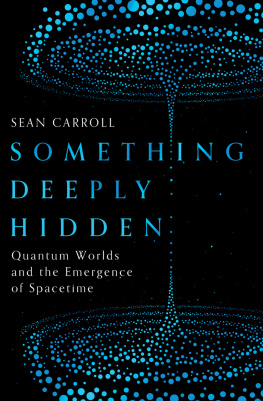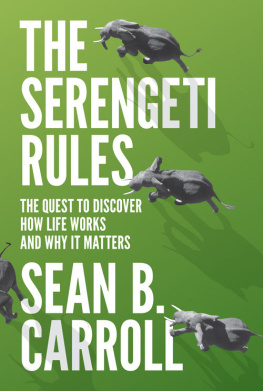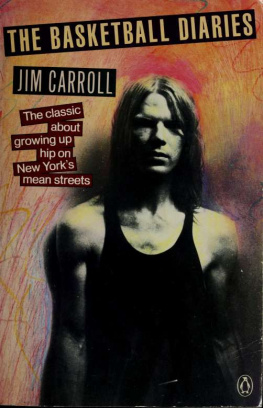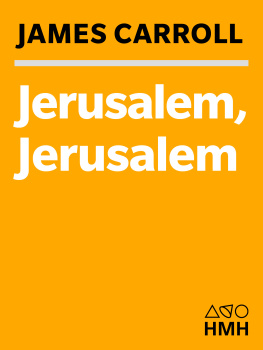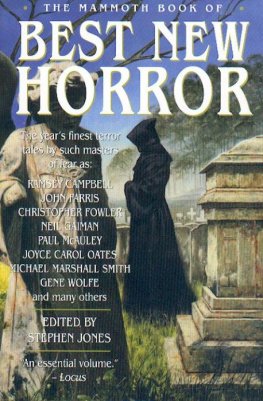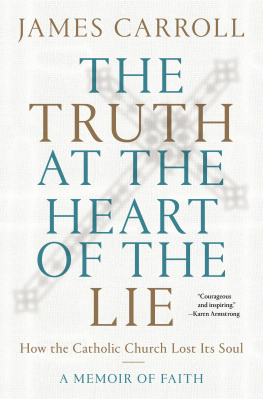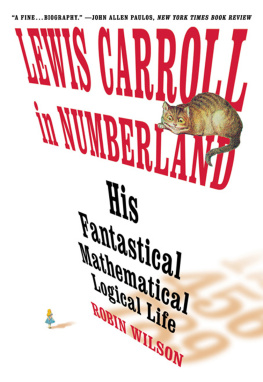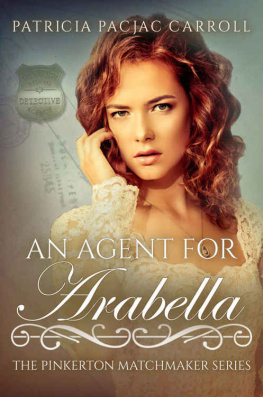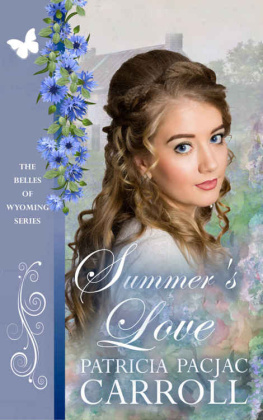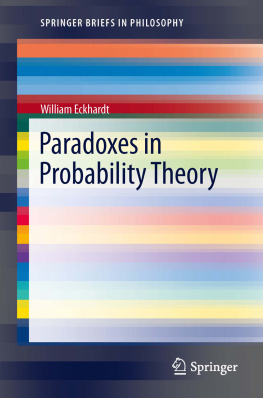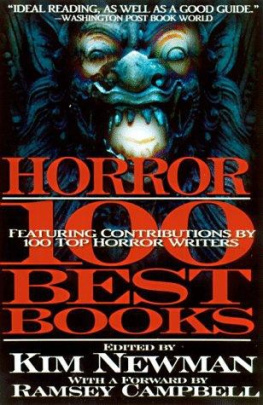Carroll - The philosophy of horror or, Paradoxes of the heart
Here you can read online Carroll - The philosophy of horror or, Paradoxes of the heart full text of the book (entire story) in english for free. Download pdf and epub, get meaning, cover and reviews about this ebook. City: New York, year: 1990;2011, publisher: Taylor & Francis (CAM);Routledge, genre: Art. Description of the work, (preface) as well as reviews are available. Best literature library LitArk.com created for fans of good reading and offers a wide selection of genres:
Romance novel
Science fiction
Adventure
Detective
Science
History
Home and family
Prose
Art
Politics
Computer
Non-fiction
Religion
Business
Children
Humor
Choose a favorite category and find really read worthwhile books. Enjoy immersion in the world of imagination, feel the emotions of the characters or learn something new for yourself, make an fascinating discovery.
The philosophy of horror or, Paradoxes of the heart: summary, description and annotation
We offer to read an annotation, description, summary or preface (depends on what the author of the book "The philosophy of horror or, Paradoxes of the heart" wrote himself). If you haven't found the necessary information about the book — write in the comments, we will try to find it.
The philosophy of horror or, Paradoxes of the heart — read online for free the complete book (whole text) full work
Below is the text of the book, divided by pages. System saving the place of the last page read, allows you to conveniently read the book "The philosophy of horror or, Paradoxes of the heart" online for free, without having to search again every time where you left off. Put a bookmark, and you can go to the page where you finished reading at any time.
Font size:
Interval:
Bookmark:

THE PHILOSOPHY OF HORROR
or
PARADOXES OF THE HEART
ROUTLEDGE New York & London
Published in 1990 by
Routledge
An imprint of Routledge, Chapman and Hall, Inc.
29 West 35 Street
New York, NY 10001
This edition published in the Taylor & Francis e-Library, 2004.
Published in Great Britain by
Routledge
11 New Fetter Lane
London EC4P 4EE
Copyright 1990 by Routledge, Chapman and Hall, Inc.
All rights reserved. No part of this book may be reprinted or reproduced or utilized
in any form or by any electronic, mechanical or other means, now known or hereafter
invented, including photocopying and recording, or in any information storage or
retrieval system, without permission in writing from the publishers.
Library of Congress Cataloging in Publication Data
Carroll, Nol (Nol E.)
The philosophy of horror.
Includes index.
1. Horror in literature. 2. Horror talesHistory
and criticism. 3. Horror filmsHistory and criticism.
I. Title.
PN56.H6C37 1989 809.916 8910469
ISBN 0-415-90145-6
ISBN 0-415-90216-9 (pbk.)
British Library Cataloguing in Publication Data
Carroll, Nol
The philosophy of horror.
1. Arts. Special subjects. Horror
I. Title
704.94
ISBN 0-203-36189-X Master e-book ISBN
ISBN 0-203-37447-9 (Adobe eReader Format)
ISBN 0-415-90145-6 (Print Edition)
0-415-90216-9 (pb)
eISBN: 978-1-13596-503-7
Dedicated to Sally Banes
Undoubtedly, my parents, Hughie and Evelyn Carroll, inadvertently gave birth to this treatise by telling me not to waste my time and money on horror books, magazines, comics, TV shows, and movies. In a final act of filial defiance, I, a middle-aged baby-boomer, have set out to prove to them that I was gainfully employed all along.
My thinking about horror really began to assemble itself when Annette Michelson and I taught a course in horror and science fiction at New York University. Annette soldiered the science fiction half of the course, while the gooier parts of the terrain became my lot. Annette was, and has continued to be, very helpful in the development of my theory. She suggested casting my notions about horrific biologies in terms of fusion and fission, and, as well, she has continually pressed me, with regard to my skepticism about contemporary film theory, to take the paradox of fiction seriously. Though my solutions to her questions may not be what she expected, I hope they are at least intriguing.
Early on, two philosophersboth of them horror addictsabetted me in the conviction that pursuing this topic could be interesting. Judith Tormey and I spent an exhilarating drive to Mexico together, boring everyone else in the car while we swapped favorite monster stories. Jeff Blustein read my earliest attempts in horror theory with the analytical rigor and the enthusiasm only a fellow horror buff can appreciate.
The late Monroe Beardsley also read my nascent efforts at horror theory. He wondered aloud how I could be interested in this stuff. But then he addressed my hypotheses with what could only be thought of as arcane counterexamples. Sheepishly, he explained his estimable expertise in the field by saying that he had had to squire his sons through the fifties horror movie cycle, and that he just happened to remember some of the films (in amazing detail, I would add).
My interest in horror gradually turned into academic papers, delivered at the University of Southern California, the University of Warwick, the Museum of the Moving Image, LeMoyne College, Cornell University, New York University, and the University of Iowa. Each audience provided challenging commentsof special note are those of: Stanley Cavell, Ed Leites, Karen Hansen, Richard Koszarski, Johnny Buchsbaum, Stuart Liebman, Allan Casebier, Jim Manley, Bruce Wilshire, Susan Bordo, the late Irving Thalberg Jr., Stephen Melville, Mary Wiseman, Ken Olsen, Nick Sturgeon, Anthony Appiah, David Bathrick, Cynthia Baughman, Murray Smith, Dudley Andrew, Henry Jenkins, Kristin Thompson, Berenice Reynaud, and Julian Hochberg.
Much of the initial writing of this book began during a sabbatical at Wesleyan University. Early discussions with Kent Bendallone of the most precise and yet imaginatively open philosophers it has been my privilege to knowgave me important clues for solving what I call the paradox of fiction. Long talks with Chris Gauker, over several extremely pleasant dinners, helped me clarify my position. Ken Taylor and especially Philip Hallie, whose pioneering work on the philosophy of horror in his book TheParadox Cruelty served as an exemplar, listened to my theories with a critical attentiveness that was generous, and always supportive and instructive. Phil was even willing to go to a number of movies with me and to discuss them afterwards (something only someone who works on the genre of horror can realize is a gesture of unstinting companionship).
Michael Denning, Nancy Armstrong and Leonard Tennenhouse provided many useful suggestions about correspondences between my research and contemporary literary studies. Betsy Traube, transcending her aversion to my topic, made many pertinent recommendations about relevant anthropological literature. Khachig Tololyan who, among his many accomplishments, runs one of the worlds great clipping services, kept me constantly on top of my subject. And Jay Wallace, who read drafts of the first two chapters with immense care, supplied me with copious criticisms and suggestions. On more than one occasion, Jay showed me how I could modify my claims judiciously and still make my points. Both his unalloyed interest and his arguments have made significant differences in this book. It was wonderful to have been his colleague.
Francis Dauer, Annette Barnes, John Fisher, Dale Jamieson, George Wilson, Arthur Danto, George Dickie, John Morreall, Richard Moran, Terry Irwin, Laurent Stern, Paul Guyer, Alex Sesonske, Daniel Banes, Jennefer Robinson, Susan Feagin, Gary Iseminger, Roy Gordon, and Myles Brand listened to, or read my hypotheses, and made comments which I found important to consider. Joe Margolis, across a number of conversations, showed me the need to make several distinctions I had ignored, as well as pointing me toward some authors of whose work I had been uninformed. Richard Shusterman, after reading my essay The Nature of Horror, alerted me to Peter Lemarques seminal and more advanced writings on the very type of theory of fictional objects that I was attempting to develop.
Tony Pipolo and Amy Taubin, both of whom see and read everything, gave me front-line reports on every novel, film and video that I hoped to accommodate in my theory. If their sensibilities outstrip my formulas, I hope they can nevertheless see some of their sensitivities worked into my descriptions.
David Bordwell, David Konstan, and Peter Kivy read the entire manuscript. Each made provocative criticisms and useful suggestions. David Bordwell showed me how I needed to clarify the distinction between my theory and reigning psychoanalytic models in the humanities today, as well as correcting some (there werent that many) of my film-historical errors. David Konstan made sentence-by-sentence remarks, many of which I have incorporated; those I have bypassed, I suspect, I have so done at my own peril. Peter Kivy not only copy-edited the manuscript, but made many penetrating philosophical comments about the content. However, above all, it is to Peter that I owe, due to his work in the philosophy of music, the insight of the applicability, in general, of the theory of the emotions to questions in the philosophy of art.
Font size:
Interval:
Bookmark:
Similar books «The philosophy of horror or, Paradoxes of the heart»
Look at similar books to The philosophy of horror or, Paradoxes of the heart. We have selected literature similar in name and meaning in the hope of providing readers with more options to find new, interesting, not yet read works.
Discussion, reviews of the book The philosophy of horror or, Paradoxes of the heart and just readers' own opinions. Leave your comments, write what you think about the work, its meaning or the main characters. Specify what exactly you liked and what you didn't like, and why you think so.

